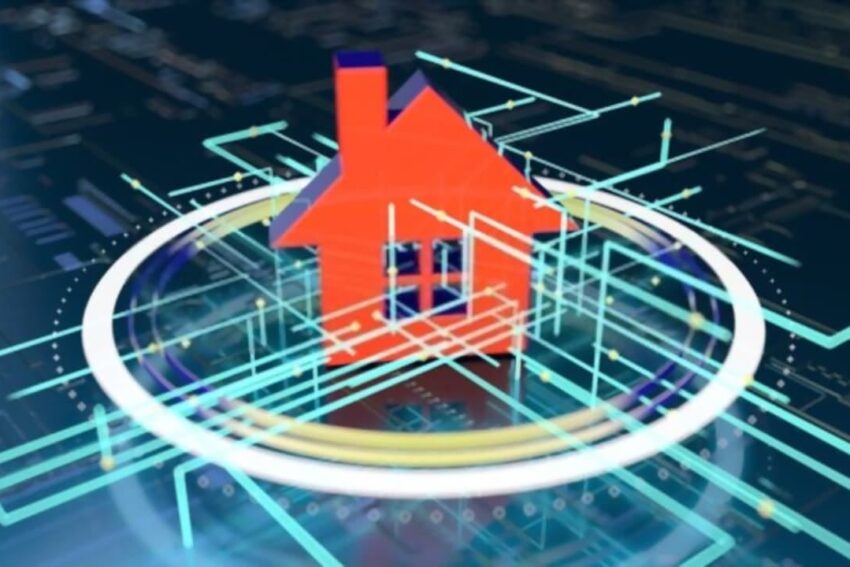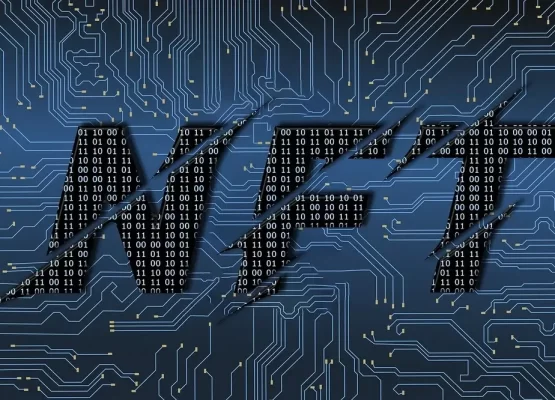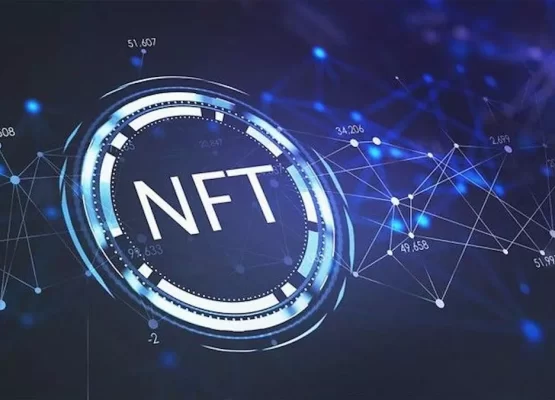NFTs are the properties in the real estate market. When a property is purchased through a cryptocurrency exchange, the seller is compensated in tokens and the buyer is issued a non-fungible token (NFT). This non-fungible token (NFT) stands in for title to a piece of real land.
To digitally arrange sales and payments, smart contracts, which use the blockchain, are already in use. NFT data can be stored in a smart contract, which can then be used to automatically carry out the terms of a purchase agreement.
Large amounts of information needed for non-fungible real estate tokens make blockchain storage an impractical option. Because of this, smart contracts typically include an owner-only link to the underlying work or asset represented by an NFT.
Smart contracts can store information about assets such as:
- Ownership information
- Real estate location
- Investors’ rights
- Parties entitled to royalties each time the NFT is sold
- Ownership history of the asset
Property, both actual and virtual, can be bought and sold using NFTs.
NFTs for virtual real estate
Real estate that only exists in cyberspace is called “virtual real estate.” Such properties can be acquired by exchanging cryptocurrency for NFTs that represent ownership rights, and each planet often has its own coin. Users can utilize NFTs to ensure that the virtual real estate they’ve purchased in a game or other metaverse platform is legitimate and theirs to keep.
The development of virtual real estate is a major aspect of the expanding metaverse. Investors in Real Estate NFT Tokenization within MMORPGs do so with the expectation of future financial gain. By 2027, the estimated value of the metaverse market is $596.47 billion. And by 2026, 25% of the population is projected to spend at least an hour every day in the metaverse, according to research firm Gartner.
The Metaverse is a shared online environment where augmented reality meets the digital world. It has a long-lasting physical effect and improves immersion.
Eventually, the Metaverse will be the area where solitary pursuits (such buying digital land and building virtual dwellings, taking part in a virtual social experience, etc.) are carried out.
NFTs for physical real estate
Non-Fungible Tokens (NFTs) representing real estate can be traded on dedicated exchanges. Tokenizing real estate can be done either by representing the complete asset or by representing a fractional piece of it.
Let’s take a quick look at the key distinctions between tokenizing a portion of an asset and tokenizing the complete asset.
Tokenization of fractional ownership (FO) is straightforward and functions similarly to crowdfunding. Blockchain tokens (either semi-fungible or non-fungible) indicate ownership in the asset and can be purchased by investors in exchange for a fixed number of shares. Tokens can be viewed as a sort of security similar to stocks, therefore it’s important to familiarize yourself with the applicable legislation in the country where you plan to do business. If you’re doing business in the United States, for instance, you should keep an eye on impending SEC laws concerning NFTs and the broader FinTech industry.
Tokenizing an entire asset is more involved because it calls for the transformation of physical property deeds into NFTs. The NFT community is awaiting the passage of legislation to create a new asset class that permits deeds to exist in the form of NFTs before completely adopting this strategy. Despite the technical and legal hurdles, some businesses have begun “tokenizing” ownership of real estate by forming separate legal corporations and issuing tokens for those firms.
One Florida home, for instance, went for NFT at auction. The top bidder, who put down 653,163 ETH, is now the proud owner of the NFT for the four-bedroom home that exists only in the blockchain.
How does an NFT marketplace work for real estate?
By linking their cryptocurrency wallets to the site, users can purchase and sell real estate NFTs. This is the physical manifestation of the idea of NFT real estate.
How would such a platform function and what conveniences would it bring?
The digitization of real estate is the most crucial and fascinating aspect of this. Here is a summary of the argument:
- The property deeds does process, and the resulting digital assets transfers to the buyer.
- These tokenize digital assets issues on an exchange. Although it is preferable for an asset’s creation and minting to occur on the same platform, other appropriate marketplaces may suffice.
- All of the property’s documentation, including contracts and disclosure agreements, includes in the newly NFT. It does post for sale and accompanied by the necessary technical description.
- To store and initiate transactions on the NFT marketplace, users should link their crypto wallets to the site.
- The parties involved in the NFT asset exchange decide to get things rolling.
NFT-driven solutions for the real estate industry: benefits and challenges
Due to the increased transparency and security offered by NFTs, a wider range of investors will be able to get into the real estate market. NFTs, with the blockchain as its underlying technology, may make it harder to commit crimes like tax evasion.
Let’s examine four significant advantages NFTs may offer to landlords, brokers, and investors in a real estate industry powered by NFTs.
Strengthen the safety of online transactions. By capitalizing on the benefits of blockchain technology, NFT markets tailored to the real estate industry can guarantee the security and data integrity of digital transactions. There is a huge reduction in cyber fraud threats and time spent trading on such platforms. For instance, Propy, a platform for buying and selling real estate, recently completed the sale of an apartment using non-fungible tokens (NFTs) and is now developing a similar platform in the United States.
Streamline the process of verifying property ownership. The blockchain is use to create NFTs, making them unchangeable and secure. Property papers, such as deeds, can turn into non-fungible tokens that can use in a variety of ways.
- Reduce the time and money spent on property ownership documentation and notarial services.
- Reduce the potential for fraud.
Quicken the pace at which one can buy or lease real estate. The use of NFTs has the potential to streamline the real estate transaction process for all stakeholders.
NFT real estate platforms can assist enterprises in a number of ways, including but not limited to the following:
- Create your own currency within the system.
- Listing homes for rent or sale has never been simpler.
- Quickly find available homes.
- Guarantee prompt settlement with crypto.
In addition, if you establish a reliable NFT marketplace, you can speedily verify the identities of all parties involved in the purchase and sale of real estate.
Reduce the complexity of mortgages. NFTs present a chance for real estate companies to become paperless with mortgages. For instance, the home financing service LoanSnap has already issued NFTs on the Bacon Protocol platform [PDF] in 2021. The plan was to mail a freshly created NFT loan to a property owner. After that, the homeowner can start making payments to the Bacon Protocol. LoanSnap claims that homeowners who are looking for adaptable solutions but are unfamiliar with the blockchain or NFTs can enter the market more easily thanks to third-party minting.
The Problems with NFTs in the Property Industry
No governing structure exists.
The legal structure of NFTs is still thoroughly describe in many jurisdictions. Buyers have doubts that a digital purchase would result in full legal possession of a home because of this. To solve this problem, investigate how related projects have utilized NFTs in real estate transactions. For instance, Propy claims that it has successfully integrated its NFTs into US law by transferring property ownership from an individual to a company established in the United States.
Observance of tax regulations.
It’s generally safe to generalize that real estate transactions does taxes in the vast majority of nations. There are many unanswered problems about how to handle taxes in each country or state when using an NFT as a digital representation of property. Keep an eye on the latest developments and legislation to prevent any legal entanglements, as Tax Notes contributing writer Roxanne Bland predicts that NFTs will soon be subject to sales tax in the United States.
Potential for a sharp decline in value.
On online marketplaces, NFTs are frequently exchange for cryptocurrency. There can be both ups and downs in the cryptocurrency market. The sudden and unexpected decline in value of a real estate NFT has the potential to frighten off investors.
Not much excitement among the senior population.
The majority of commercial real estate owners are Baby Boomers, who are less inclined to embrace technological advances than their younger counterparts, at least in the near future. Therefore, real estate companies contemplating the incorporation of NFT-related technology into their services may wish to combine this strategy with a more traditional one in order to meet the requirements of a wider range of customers.
The crypto keys may have been lost.
Safe and clear dealings can be made possible by using NFT marketplaces for real estate. However, problems may also arise from the perspective of the user. When customers lose access to their cryptocurrency accounts, for instance, it might cause problems like trade delays and other inconveniences.
Conclusion
Many people and governments are still learning about the concept of non-fungible tokens, which means that they need to establish robust legal frameworks for their use.
While there are still legal and technical hurdles to overcome, some real estate firms are already minting real estate tokens, creating smart contracts for mortgages, and offering their customers the ability to buy, sell, and rent properties through the blockchain. This is done in an effort to acquire an edge over the competition and position themselves favorably after legal frameworks does have establish.




